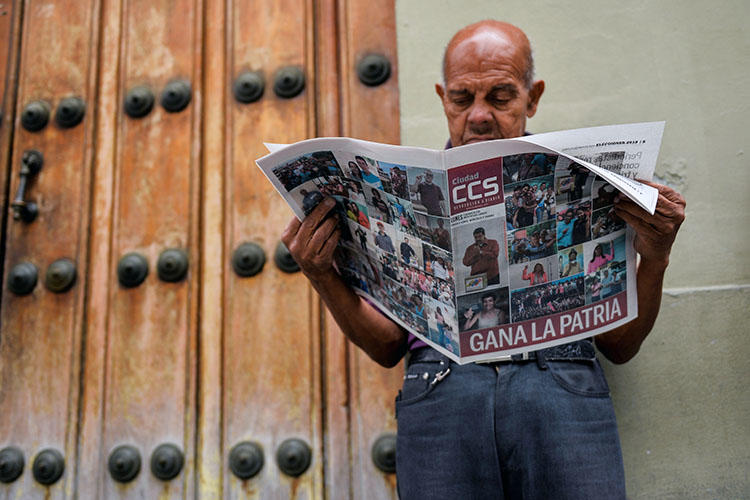New York, May 24, 2018–The Venezuelan government should halt its investigation of a leading independent newspaper’s website and allow it to publish freely, the Committee to Protect Journalists said today.
The Venezuelan national telecommunications regulator on May 22 opened an investigation into content published on the website of El Nacional, the country’s biggest independent daily newspaper, and accused it of inciting unrest with its coverage of national elections that took place on May 20, according to news reports and newspaper staff.
The National Telecommunications Commission (Conatel) ordered the newspaper to stop publishing information on its website that could “upset the peace of citizens…by presenting erroneous or unfounded information,” according to a press release published on Conatel’s website. The agency gave the newspaper 10 days to present its defense, according to reports.
“This investigation is the Venezuelan government’s latest attempt to crack down on critical coverage and silence independent media across the country,” said Natalie Southwick, CPJ’s Central and South America research associate. “Venezuelan authorities should immediately drop the investigation into El Nacional and stop using repressive laws to harass and censor news outlets.”
In its statement, Conatel accused the newspaper of violating the Law on Social Responsibility in Radio and Television and the Anti-Hate Law for Tolerance and Peaceful Coexistence, a repressive piece of legislation passed last year amid fears it would be used to silence media outlets.
El Nacional editor Miguel Henrique Otero told CPJ by phone that the newspaper had not been informed exactly which content violated the law, or what the potential sanctions might be. “The government is using Conatel as an instrument to enforce the anti-hate law, and the goal is to silence us,” Otero said.
Conatel did not answer CPJ’s calls seeking comment.
President Nicolás Maduro was re-elected on May 20 in an electoral process that was widely viewed as illegitimate in the international community, and that featured widespread abstention among voters, according to reports.
The Maduro government has numerous tools to control and intimidate the media, according to CPJ research. These include a restrictive 2004 press law, state advertisement boycotts, threats to cancel broadcast licenses, a monopoly over the importation and distribution of scarce newsprint, and, now, the anti-hate legislation.
El Nacional, one of the country’s few remaining independent dailies, has paid a high price for its continued critical reporting. The newspaper has faced a shortage of newsprint, government fines, repeated investigations, and lawsuits, including a defamation charge and travel ban against Otero, who continues to direct the newspaper from exile.
